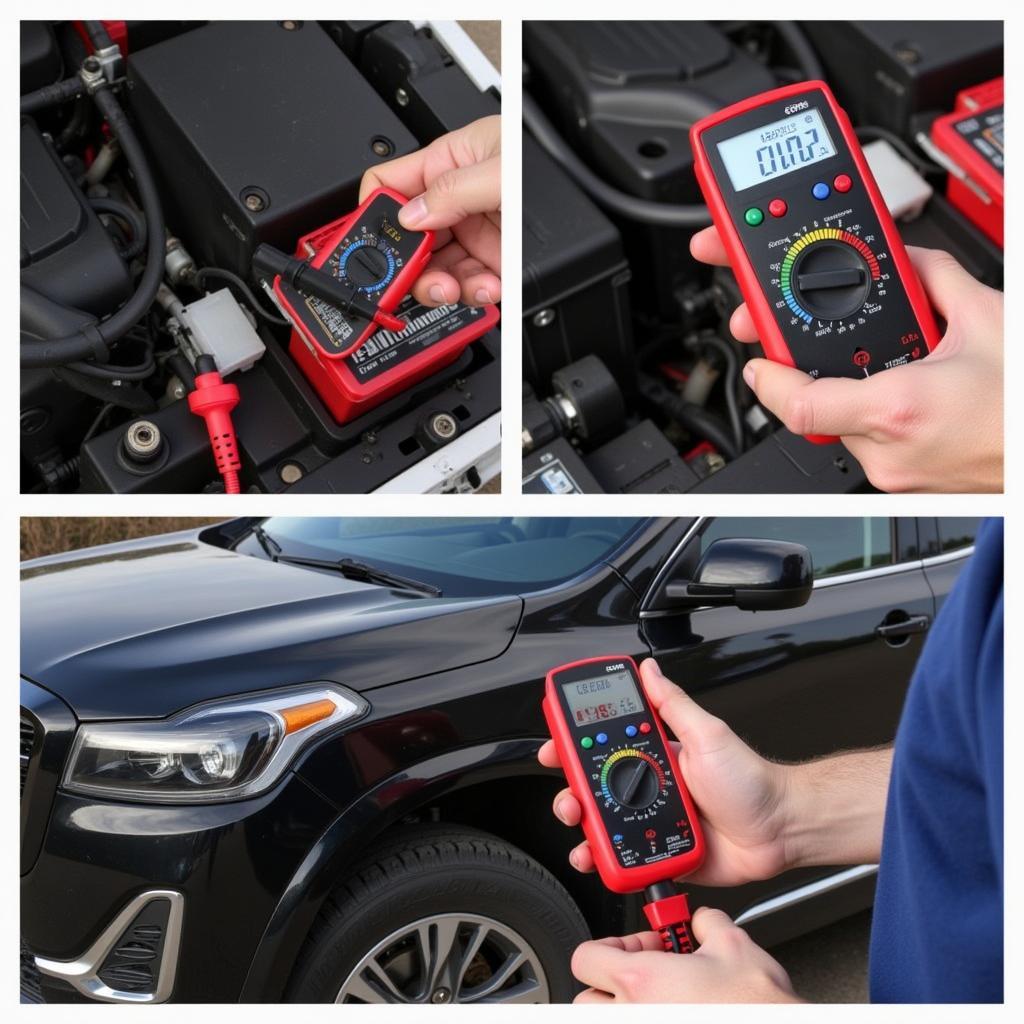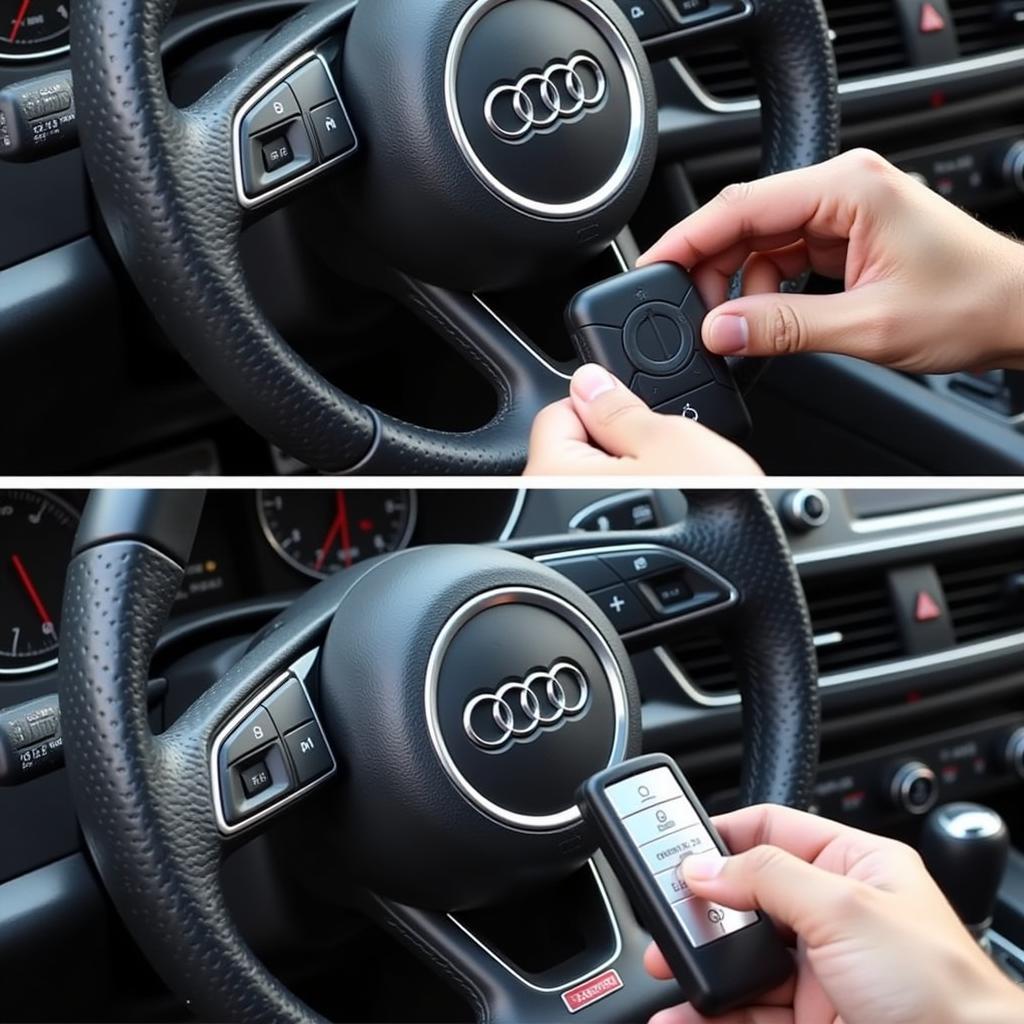Hearing a high-pitched screech every time you apply the brakes in your Honda Civic? You’re likely dealing with the infamous “brake pad screech warner.” While this sound can be alarming, it’s actually a safety feature designed to alert you that it’s time for brake maintenance. This article will guide you through the reasons behind the screeching, how to diagnose the issue, and what steps you can take to silence the noise and keep your Civic braking safely.
Why is My Civic’s Brake Pad Screech Warner Going Off?
The most common culprit for the brake pad screech is simple wear and tear. Honda Civic brake pads are equipped with a small metal tab called a “wear indicator.” As your brake pads wear down over time, this metal tab eventually comes into contact with your brake rotor when you apply the brakes. This contact creates the high-pitched screeching sound, signaling that your brake pads have reached their minimum thickness and require replacement.
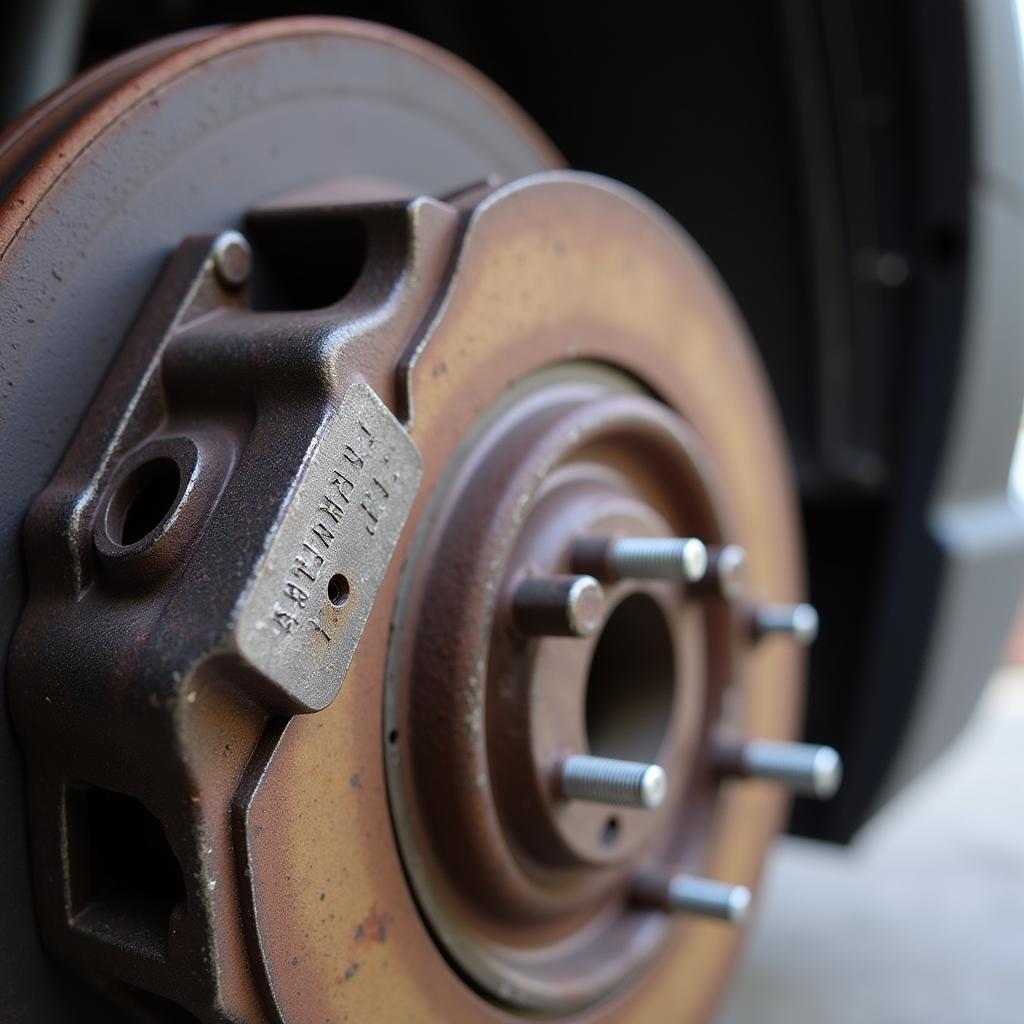 Civic Brake Pad Wear Indicator
Civic Brake Pad Wear Indicator
However, there are other potential reasons for the screeching, even if your brake pads are relatively new:
- Glazed Brake Pads: Excessive heat caused by heavy braking can cause a buildup of brake pad material on the rotor surface, creating a slick, glazed surface that can lead to noise.
- Dirty or Corroded Rotors: Rust, dirt, or debris buildup on your brake rotors can also cause friction and noise when braking.
- Low-Quality Brake Pads: Cheap or substandard brake pads can wear unevenly or contain hard metal particles that contribute to squealing.
Diagnosing the Cause of the Screeching
Before assuming you need new brake pads, it’s crucial to pinpoint the exact cause of the screeching. Here’s a step-by-step guide:
- Listen Carefully: Does the screeching occur every time you brake, or only in specific situations like low speeds or after driving in wet conditions?
- Inspect Your Brake Pads: If you’re comfortable with basic car maintenance, you can visually inspect your brake pads. Look for signs of significant wear, uneven wear patterns, or any visible damage.
- Check Your Rotors: Examine your brake rotors for any grooves, scoring, or excessive rust.
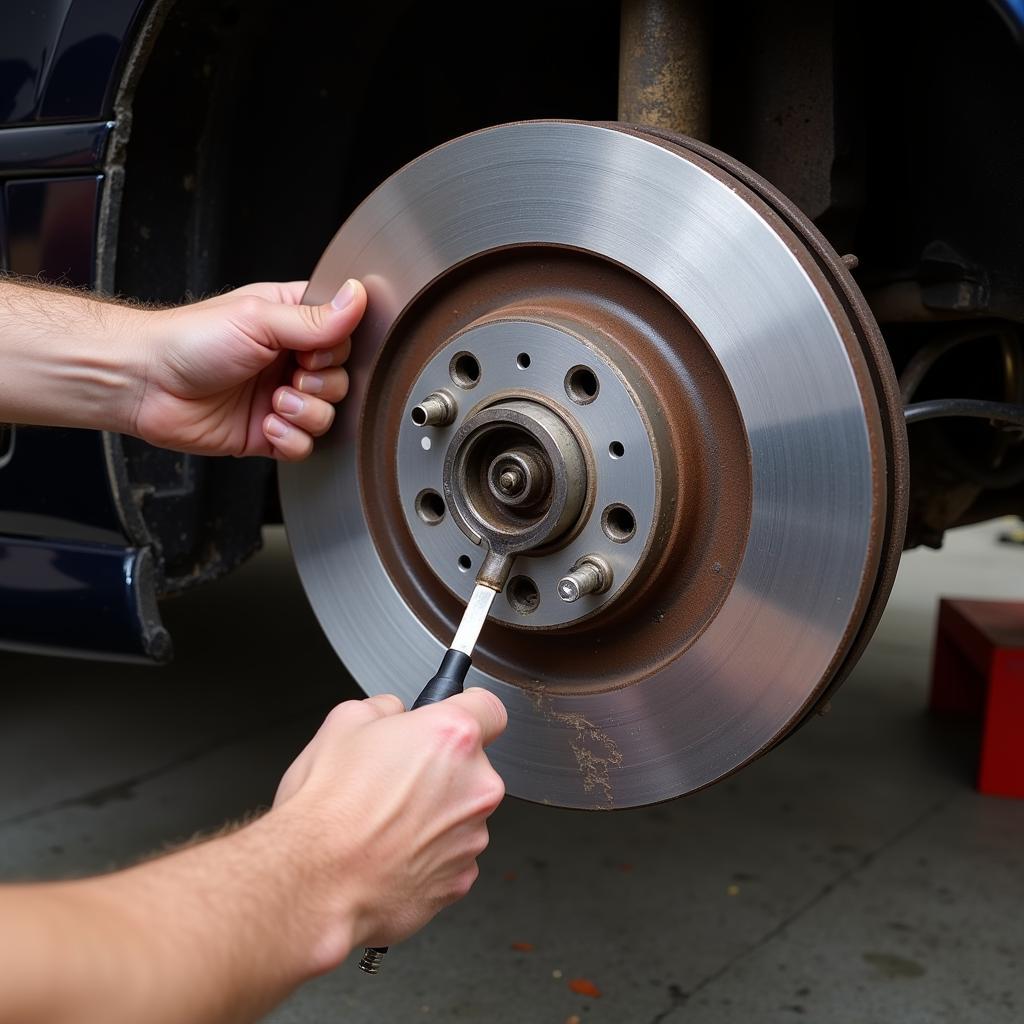 Civic Brake Rotor Inspection
Civic Brake Rotor Inspection
If you’re unsure about your diagnosis, it’s always best to consult a qualified mechanic or Honda dealership for a professional inspection.
Silencing the Screech: Solutions for Civic Brake Pad Noise
The solution to your Civic’s brake pad screeching depends on the underlying cause:
- Worn Brake Pads: The most straightforward solution is to replace your brake pads. This typically involves removing the old pads, installing new ones, and resurfacing or replacing the rotors if necessary.
- Glazed Brake Pads and Rotors: Resurfacing or replacing the rotors can remove the glazed layer and restore smooth braking. In some cases, sanding down the brake pads slightly can also help.
- Dirty or Corroded Rotors: Cleaning your rotors with a brake cleaner and a wire brush can help remove debris and rust.
- Low-Quality Brake Pads: Consider investing in higher quality brake pads from reputable brands. They might cost more upfront but can offer better performance and longevity.
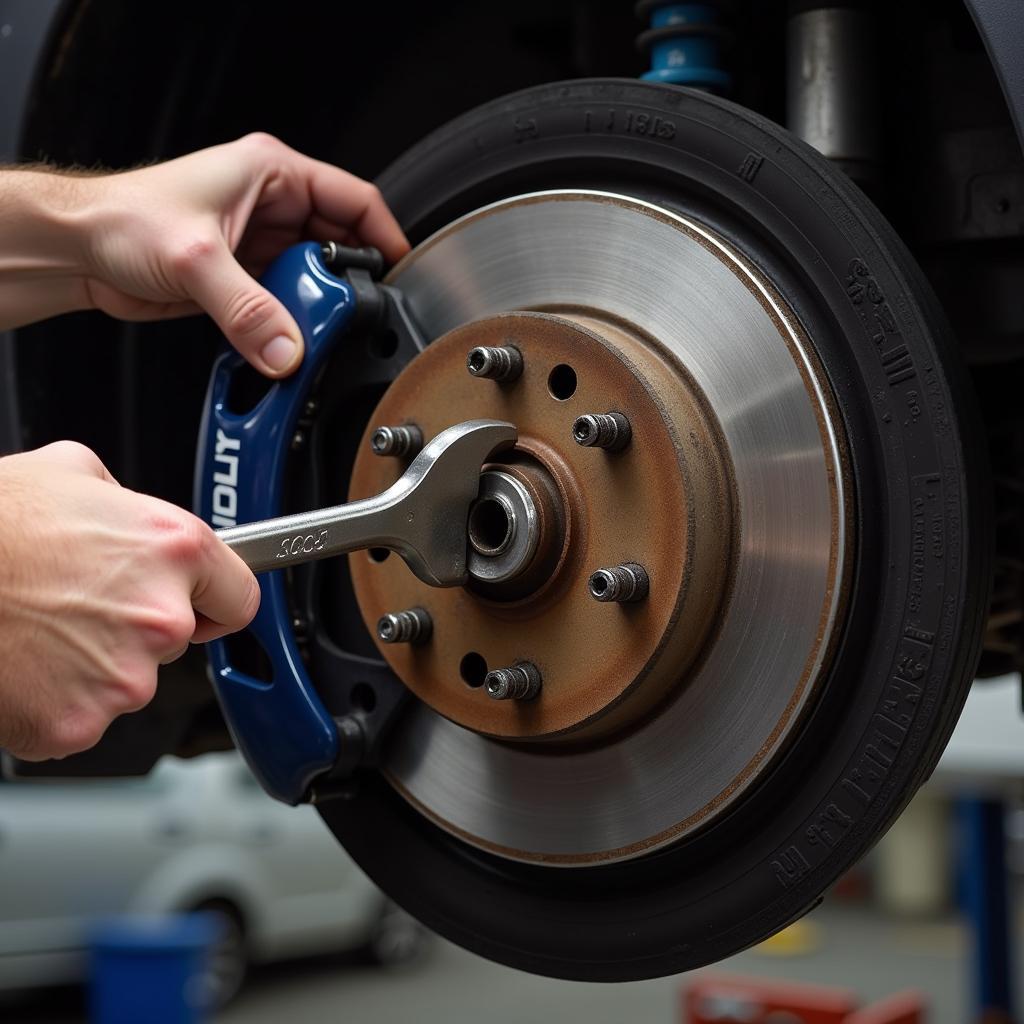 Civic Brake Pad Replacement
Civic Brake Pad Replacement
Expert Insight
“Many drivers ignore the brake pad screech warner, thinking it’s just an annoyance,” says John Smith, a senior mechanic at ABC Auto Repair with over 20 years of experience working on Honda vehicles. “But that screeching is a warning sign you shouldn’t ignore. Driving with worn brake pads not only compromises your safety but can also lead to more expensive repairs down the line if it damages the rotors.”
Preventing Future Brake Pad Screeching
While brake wear is inevitable, you can take steps to prolong the life of your brake pads and prevent premature screeching:
- Avoid Hard Braking: Anticipate stops and coast to a stop whenever possible to reduce stress on your brakes.
- Brake Pad Break-In Period: New brake pads require a break-in period to function optimally. Avoid hard braking for the first few hundred miles after getting new pads installed.
- Regular Brake Inspections: Schedule routine brake inspections, ideally every 12,000 miles or as recommended in your Civic’s owner’s manual.
Addressing the “Civic brake pad screech warner” promptly ensures your safety and the optimal performance of your vehicle. By understanding the causes, conducting a proper diagnosis, and implementing the right solutions, you can silence the screech and enjoy a quieter, safer ride.

